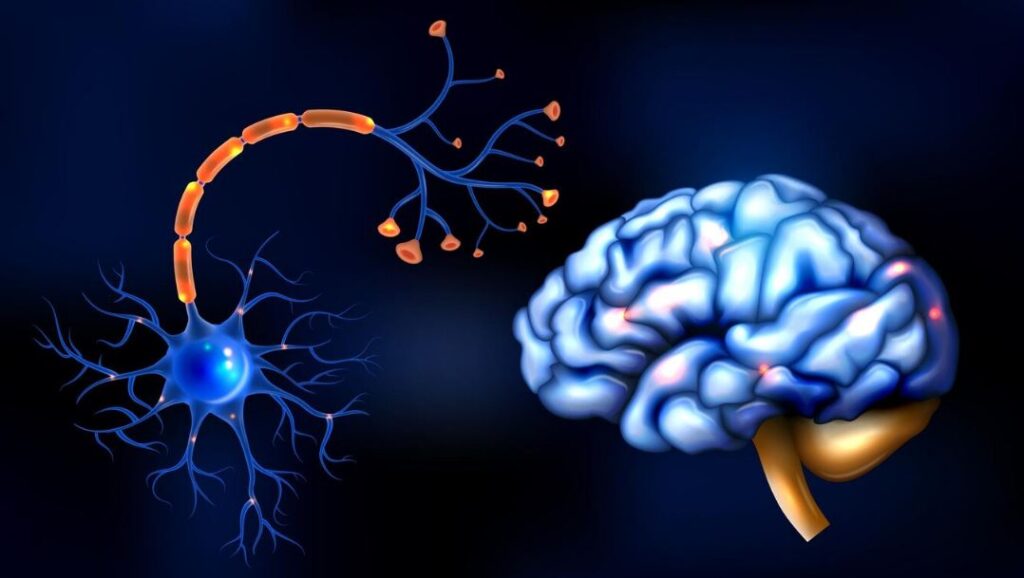Motor Neurone Disease Svenska, or motorneuronsjukdom as it is officially known in Sweden, is being monitored with remarkable accuracy because of the nation’s exceptionally well-organized ALS/MND registry. Since its inception in 2015, this program has strengthened research networks, greatly enhanced clinician coordination, and—perhaps most importantly—offered patients more reliable, superior care wherever they may be. It’s an exceptionally successful model for managing intricate neurodegenerative illnesses in a vast, geographically heterogeneous country.
The most prevalent kind listed in the Swedish registry is still Amyotrophic Lateral Sclerosis, or ALS. Patients gradually lose their ability to control their muscles voluntarily as a result of the disease, starting with early symptoms like twitching, stumbling, or weakened grip. In addition to being slow, the progression is excruciatingly methodical. However, symptom management has significantly improved with early detection, frequently enabling patients to retain their independence for longer than anticipated.
Motor Neurone Disease Svenska – Key Details
| Category | Information |
|---|---|
| Swedish Term | Motorneuronsjukdom |
| Primary Disease Types | ALS, PLS, PMA, PBP, SMA, MMA |
| Most Common Form in Sweden | Amyotrophic Lateral Sclerosis (ALS) |
| National Registry | Swedish ALS/MND Registry |
| Registry Initiated | 2015 |
| Overseen By | Swedish Neuroregister |
| Affected Demographic | Adults over 50, more commonly males |
| Typical Symptoms | Muscle weakness, cramps, slurred speech, breathing issues |
| Diagnosis Methods | EMG, MRI, clinical observation, blood/CSF tests |
The collaborative structure is what makes Sweden’s strategy unique. The registry makes sure that no patient is missed by including almost all of the nation’s major hospitals. In rural areas, where access to specialized neurological care may otherwise be limited, this decentralization is especially helpful. Similar to how a well-tuned orchestra can create harmony from a variety of instruments, Sweden has essentially carefully planned its MND patient care system.
According to data released by Springer, the incidence rate has increased to more than 4 cases per 100,000 person-years in recent years. Better reporting procedures may be partly to blame for this increase, but some researchers are worried that it may also point to occupational or environmental exposures that need more research. This is consistent with international research indicating connections between heavy metals, toxins, or viral triggers and neurodegenerative diseases.
Swedish researchers are improving diagnostic techniques and investigating causes by utilizing national data. Neurologists can now rule out mimicking conditions much more effectively by using sophisticated imaging techniques like MRI in conjunction with EMG and CSF analysis. These methods enable extremely effective and customized care plans when paired with registry insights.
The effect on speech and breathing is one of the most urgent issues for MND patients. Verbal communication frequently deteriorates and swallowing becomes challenging as the illness progresses. However, Swedish hospitals have implemented adaptive technologies, such as breathing aids and speech-generating devices, which give patients a sense of control again. Under Sweden’s public health system, these interventions are surprisingly inexpensive and provide a comforting degree of assistance.
For families, the emotional toll can be severe. Extraordinary patience and fortitude are needed to care for someone whose body is betraying them day in and day out. Psychological counseling and home-care nursing programs are common components of treatment in Sweden. In addition to relieving the strain on family members, these services help patients feel respected during a very trying time in their lives.
Interestingly, Sweden’s registry has developed into a launching pad for innovative research partnerships. For example, access to anonymized patient data has sped up research on the TDP-43 protein, which is implicated in 95% of ALS cases. This protein seriously damages DNA when it is misfolded or mislocated within cells, which sets off a chain reaction of motor neuron degeneration. Comprehending its function has been especially inventive, particularly in the pursuit of genetic treatments.
Sweden’s centralized model has garnered interest on a global scale. The egalitarian design of Sweden is particularly admirable in contrast to nations such as the U.S., where ALS treatment can differ significantly by state or insurance provider. It’s the healthcare equivalent of creating a national library: gathering and conserving personal accounts to contribute to a more comprehensive scientific reality.
The link between MND and cultural awareness is still strong when considering public figures. A disease that had long been hidden in the medical underbelly gained international attention thanks to Stephen Hawking’s protracted and highly publicized fight with ALS. While there isn’t a celebrity with that kind of fame in Sweden, the registry’s efforts have fostered a kind of heroism of its own: the collection of data points in secret that add up to better futures.
The nation’s investment in MND research has changed over the last ten years, moving from cautious curiosity to full-scale commitment. The way medical professionals handle even the rarest types of motor neuropathy, like Progressive Bulbar Palsy or Monomelic Amyotrophy, demonstrates this. Previously regarded as anomalies, these variants are currently being closely monitored and thoroughly investigated.
Researchers have started looking into AI-driven diagnostics through strategic alliances with academic institutions such as Karolinska Institutet. Consider an algorithm that has been trained to use EMG pattern analysis alone to identify muscle denervation. Early-stage detection is becoming more and more likely as that future quickly becomes a reality.

